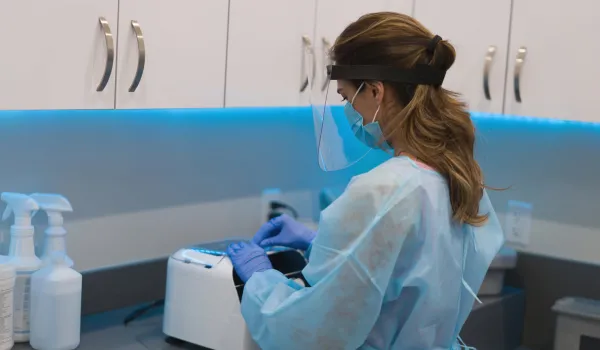Concorde Staff

2016 has been no stranger to the rise of homeopathic, natural remedies to cure common ailments.
Consider the global essential oil market. Conservative projections by Grand View Research, Inc. estimate it to be an $11.67 billion industry by 2022.
Also, popping up in metro cities across America in 2016 have been dry air salt rooms -a type of holistic, natural experience that might interest a current and future respiratory therapist.
"Salt has natural healing qualities which are antibacterial, anti-inflammatory, anti-fungal, anti-viral," according to Shane Pearson, Director of Concorde's respiratory therapist programs in Aurora, CO.
"The majority of people who visit salt rooms find relief from a variety of respiratory conditions that produce a lot of mucus during an exacerbated state such as asthma, allergies, common cold, bronchitis, COPD, and cystic fibrosis."
First noted by our friends across the pond, salt miners in European and Russian caves seemed to have hardly any respiratory issues and looked a great deal younger than their other mining counterparts.
In fact, Dr. Feliks Boczkowski opened the first health resort facility in 1839 at the Wieliczka Salt Mine in Poland.
How does it work in relation to respiratory therapy
"Patients inhale high concentrations of salt with a nebulizer that actually helps mobilize/clear secretions and mucus from the airways," Pearson said. "The salt helps thin out the mucus in the airways, making it easier to expectorate."
Hypertonic solutions (one where the concentration of solutes, like sodium or potassium, is greater outside the cell than inside it) cause mucus and/or sputum cells to disperse or shrink enhancing mobilization for improved expectoration. The solution has the same effect on inflamed airways. Inflamed airways contain fluids that decrease the inner diameter of the bronchiole constricting air movement.
Peggy Smalley, Director of Concorde respiratory therapist programs in Kansas City, MO, points out that, "It doesn't seem to be regulated, so the concentrations of salt inhaled vary from spa to spa and treatment to treatment."
Which begs the question, should people be using a therapy without current medical guidance?
Smalley's advice is, "Before you try any new and popular inhalant of any kind, do your research. Know exactly how much and what you would be inhaling as well as the technique used and potential side effects. And absolutely consult your physician - especially if you have asthma or any other respiratory illness."

Take The Next Step Towards a Brighter Future
Interested in learning more about our Respiratory Therapy program? We have a Concorde representative ready to talk about what matters most to you. Get answers about start dates, curriculum, financial aid, scholarships and more!






